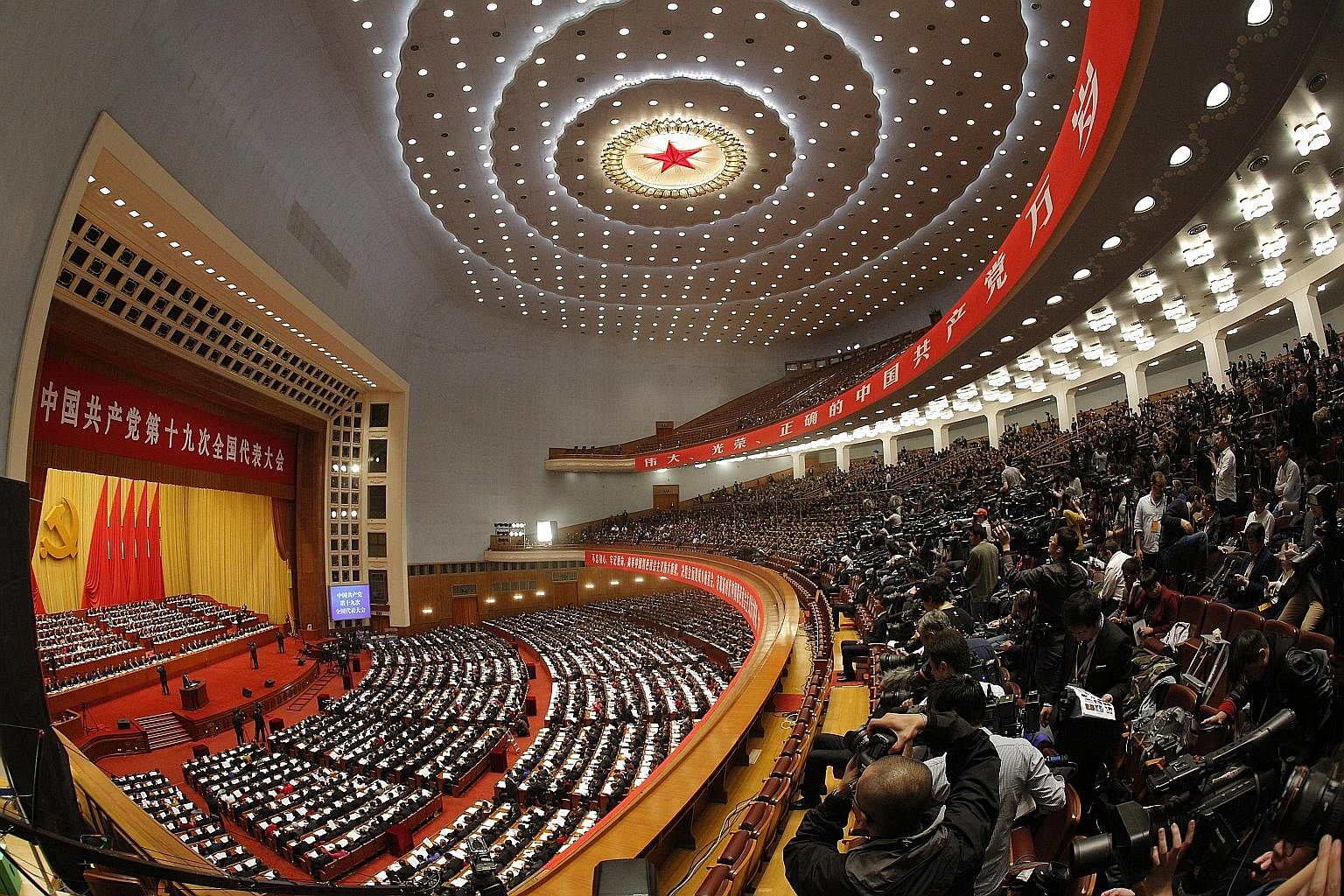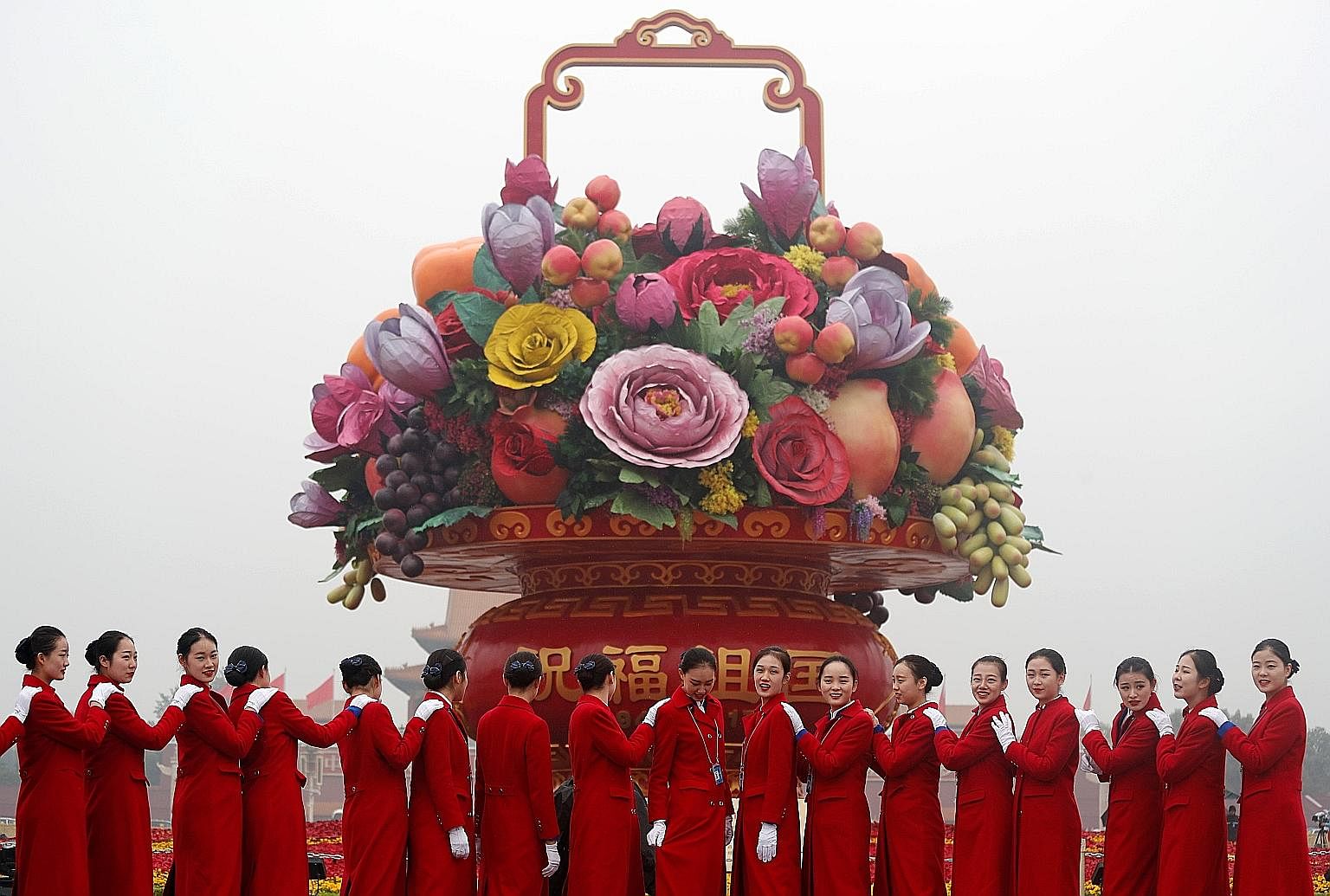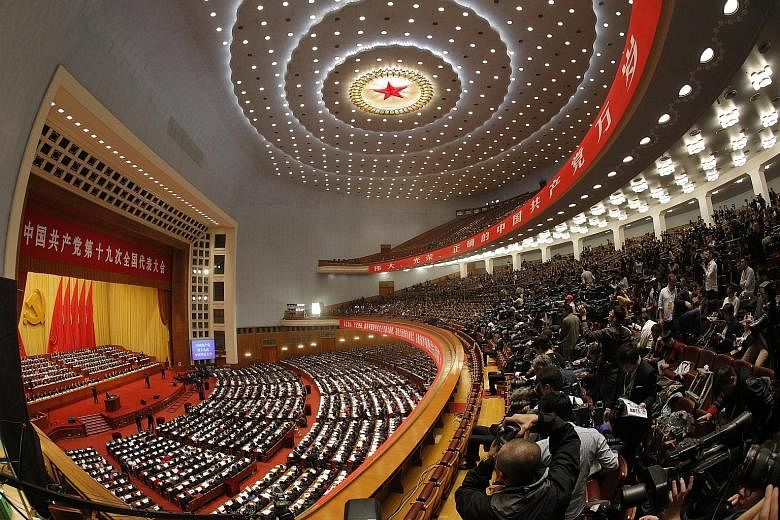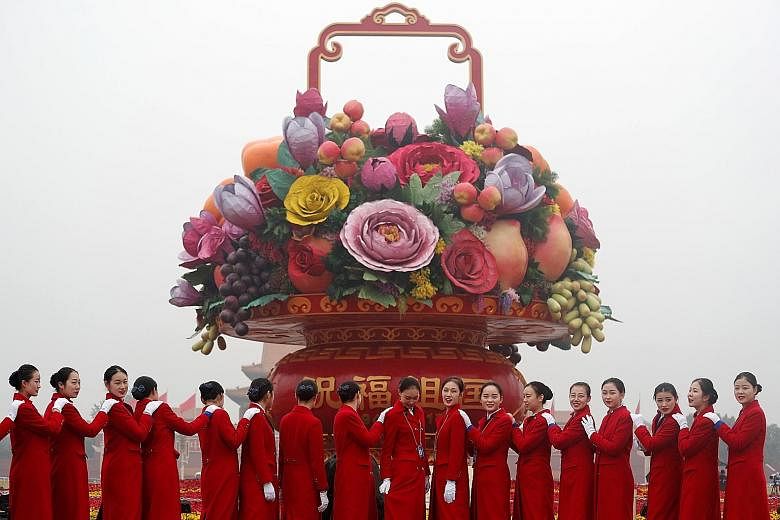Chinese President Xi Jinping signalled the start of his epoch when he spoke about a new era of socialism with Chinese characteristics, analysts say.
There are indications also that what he called "the thought on socialism with Chinese characteristics for a new era" would be written into the Chinese Communist Party's (CCP) Constitution as his guiding principle for action by party members.
Mr Zhang Dejiang, the third-ranked leader in the CCP hierarchy, said at a meeting of Inner Mongolian delegates yesterday that the party, with Mr Xi as its principal representative, was carrying out epoch-making theoretical innovation and new practices.
The party "has established the Xi Jinping thought on socialism with Chinese characteristics for a new era", he told the delegates.
His remarks came hours after Mr Xi gave his political report at the opening of the 19th national congress of the CCP, a five-yearly meeting, in which he expounded this political formulation.
It has been anticipated that Mr Xi's political thoughts would be written into the party charter at this congress after what looked like a campaign by his supporters over the past several months to make it happen.

At the seventh plenum of the party's Central Committee last week, it was announced that a draft amendment to the party charter was passed.
In addition, the committee's communique stressed the importance of "implementing general secretary Xi's series of important speeches and new ideas and new strategies for governance" at the congress.
This led analysts to conclude that Mr Xi's political thoughts would be written into the party Constitution and would bear his name, unlike in the cases of his two predecessors, Mr Jiang Zemin and Mr Hu Jintao.
What was unclear at the time was the form in which it would appear in the charter.
Yesterday's remarks by Mr Xi himself and Mr Zhang, who is also head of the National People's Congress, or China's Parliament, gave an indication of what the formulation might be.
Mr Xi in his speech also said the thought "represents the latest achievement in adapting Marxism to the Chinese context".
He noted that it built on and further enriched Marxism-Leninism, Mao Zedong Thought, Deng Xiaoping Theory, the Theory of Three Represents, which is Mr Jiang's contribution, and the Scientific Outlook on Development, Mr Hu's part of the party's guiding ideology.
He called the "thought on socialism with Chinese characteristics in the new era" a guide to action that must be adhered to and developed on a long-term basis for party members and the Chinese people alike in order to achieve national rejuvenation.
He described the components of the theory, which he said underpinned China's development goals. They include commitment to a people-centred approach in the party's work; comprehensively deepening reform; ensuring law-based governance; upholding core socialist values; and exercising full and rigorous governance over the party.

However, analysts are hesitant to say for certain that the thought as described by Mr Xi would be written into the party charter.
This is because, according to historian Zhang Lifan, "socialism with Chinese characteristics" is not a new concept and was propounded during the time of Deng Xiaoping.
Adding "new era" to it does not give a sense that there is theoretical innovation, he said.
If this is written into the charter, then it would "not reflect reality".
Hong Kong-based analyst Willy Lam concurred, saying it was more of a new rallying cry and a new slogan and that its contents were not new. It merely meant that China would not follow the institutions, systems and ideology of any other country but would go down its own road of the sinicisation of Marxism and further development of socialism with Chinese characteristics, said Dr Lam.
Mr Zhang Lifan said that overall, he could not see a complete theoretical system emerging in Mr Xi's political report, which took nearly 31/2 hours to deliver. "I don't feel any impact or innovation in the report," he said.




